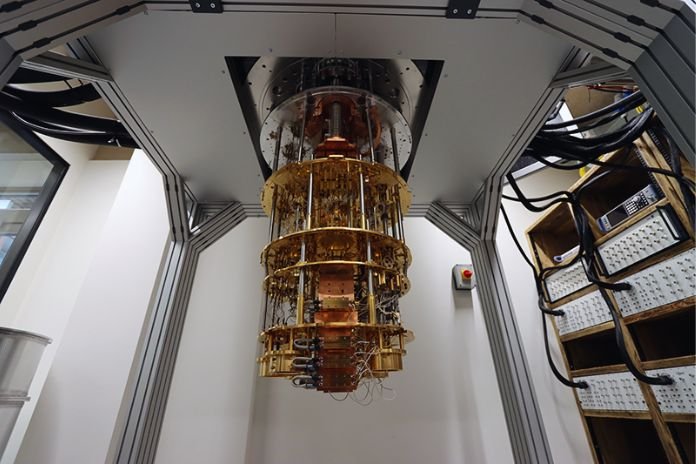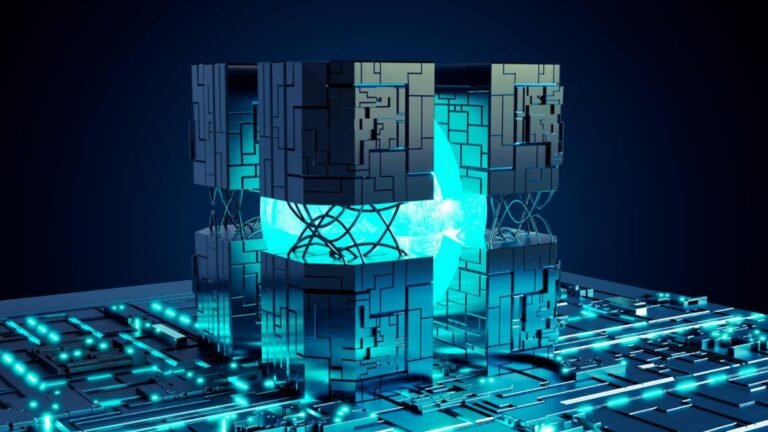
From here onward, indefinitely, the Quantum Computer was likened to a deception, an insane task we thought would be hard to accomplish. In any case, today, this fantasy is drawing nearer to the real world. For sure, numerous specialists and organizations, including IBM and Google, are setting out to compete to foster this innovation.
The States are additionally intrigued by it, for example, France, which, on the drive of the Leader of the Republic Emmanuel Macron, delivered an envelope of 1.8 billion euros north of five years for research focuses, modern gatherings, and organizations taking care of business connected with quantum innovation.
Be that as it may, its advancement requires investment, and it is still distant from being available to the overall population since there are still impediments to survival. Its mistake rate is one since it is very high and influences the dependability of the arrangements it could give. To that end, researchers are attempting to take care of this issue.
In this manner, as of late, Google Quantum artificial intelligence specialists declared that they had figured out how to decrease the mistake pace of the Quantum Computer. Their work has been highlighted in the diary Nature, and even though there are still moves to be taken before making this innovation open, it is a step in the right direction.
Quantum Computing, What Is It?
Before making sense of the procedure created by Google to decrease this mistake rate, we should take a gander at the quantum figuring framework. What separates it from the “exemplary” registering we know today? How can it function? Also, what are its potential purposes? Could we at any point appreciate it one day?
The inquiries raised by this innovation are various because it is fascinating and challenging to envision, practically speaking. As a matter of fact, dissimilar to a traditional PC which works with bits (data put away as indicated by the paired framework, with 0s and 1s), the quantum form plays out its estimations at the nuclear scale. In this manner, it alludes to the laws of quantum physical science.
Consequently, rather than bits, this PC utilizes qubits that comprise superpositions of states somewhere in the range of 0 and 1. It can accordingly investigate a few prospects and work out a lot quicker. What’s more, this is definitely one of its significant resources. It could deal with immense information and perform impossible tasks by traditional processing, like complex estimations and the reenactment of innovative materials.
In this way, it is a genuinely mechanical accomplishment that would upset numerous areas. We are just at the improvement stage, and a couple of models of little Quantum Computer are being planned. A few issues should be settled before thinking about use by a more extensive crowd.
The Error, The Black Point Of This Computer
The potential of the quantum computer is immense. However, it has its challenges. Thus, it is prone to error, and today, this is proving to be one of the main obstacles to its large-scale exploitation. Being able to process many results simultaneously, it suffers from decoherence. This means the qubits lose their quantum properties upon contact with external elements, resulting in a relatively high error rate.
And the more qubits there are, the more difficult it is to control them all – especially since they are very fragile – and the more the errors increase. Therefore, finding one or more solutions to overcome this problem is at the heart of the work of researchers and scientists. And it looks like Google is on the right track.
Google’s Efforts Are Starting To Pay Off
Google Quantum AI scientists recently reported finding a technique to reduce this error rate. To do this, they experimented using two quantum error correction method versions. The first mobilizes 17 qubits and can correct faults one by one. The second is based on the use of 49 qubits and is capable of remedying two errors at the same time. And the result is rather encouraging since the error rate is reduced by 4%.
The Chief of Google showed that, to address quantum blunders, they planned to wager on sensible qubits “rather than computing on individual qubits.” This way, “by encoding more physical qubits on our quantum processor into a solitary legitimate qubit, we desire to decrease mistake rates to empower helpful quantum calculations.” Words that remain rather dark should be conceded.
In any case, the significant highlight recall is that Google created this first framework utilizing a blunder-rectifying code equipped for distinguishing and revising them without influencing the data. Nonetheless, its specialists favor alert as they accept this procedure will only be successful on a few bigger quantum frameworks. Regardless of this advancement, they have to work to consummate their framework.
Read Also: Alexa: 4 Trends That Artificial Intelligence Reinforces



